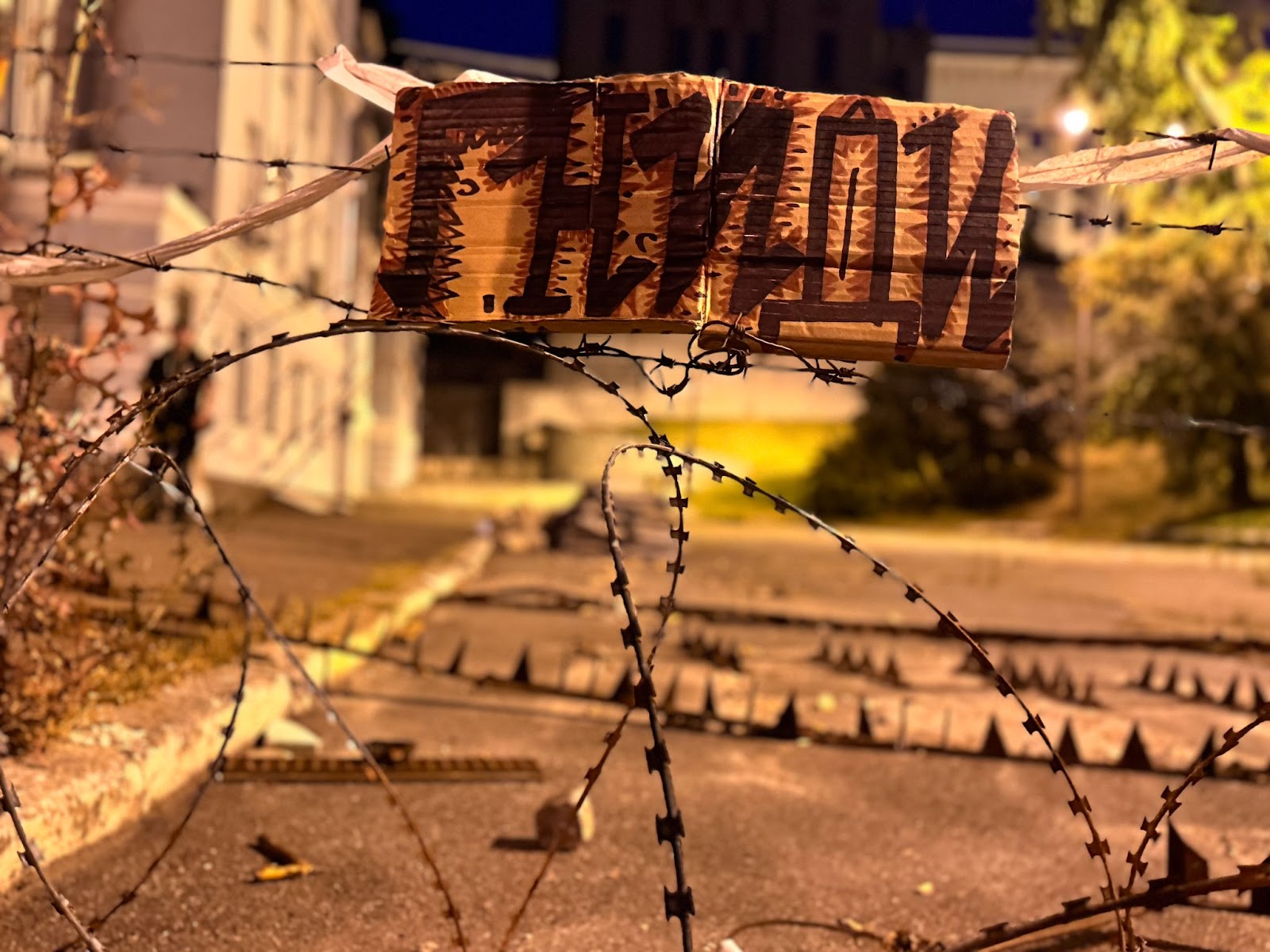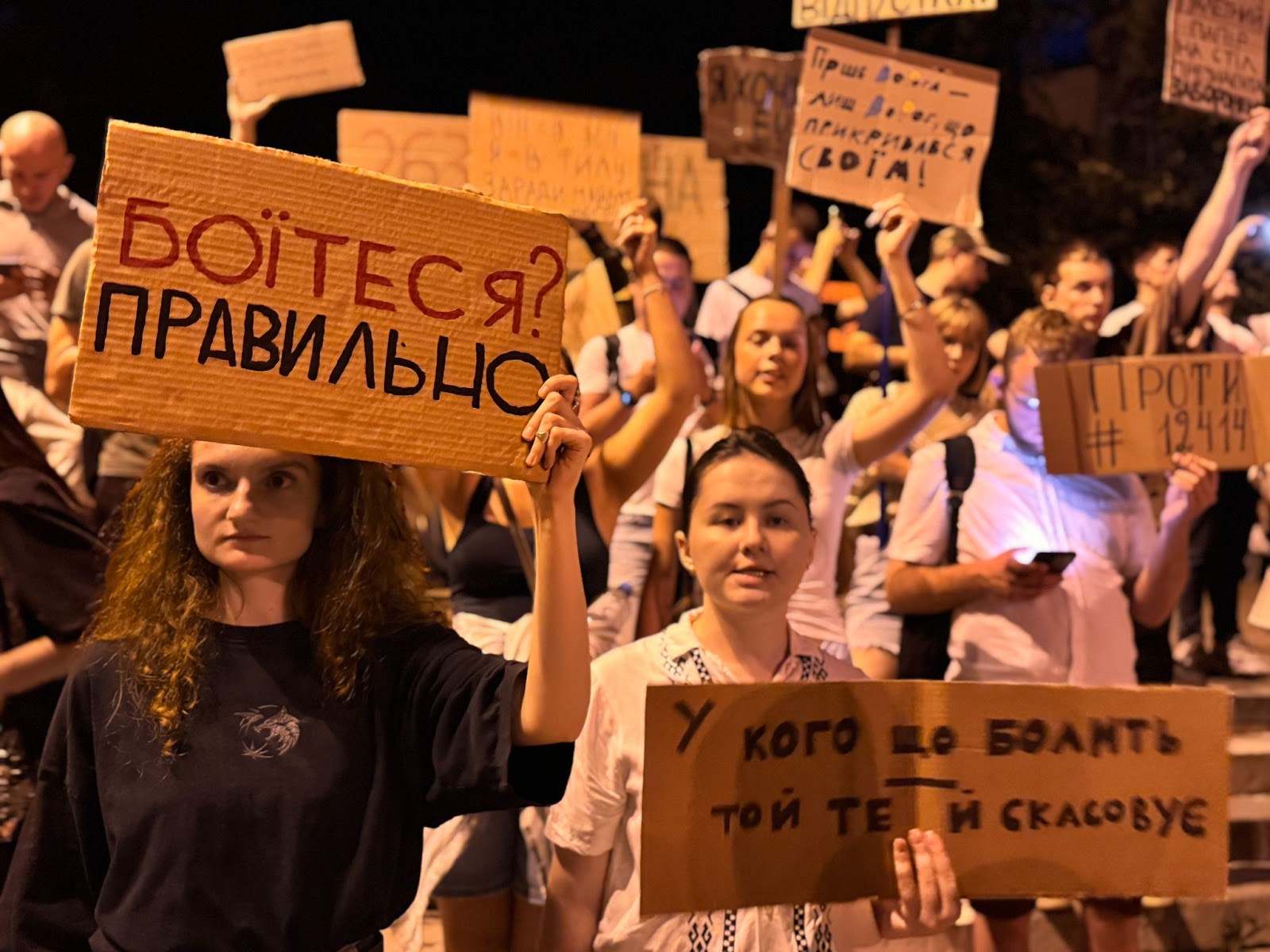Two new laws
On the third day of simultaneous pressure from the Kyiv streets and the West, two bills were registered in the Verkhovna Rada. One abolishes the odious 12414, the other the presidential one. MP Yurchyshyn, the initiator of the first, assures us that the second draft is almost identical to the first, except for the president's input. The Agency for Legislative Initiatives think tank disagrees. In its analysis of the draft law, it is emphasized that the provision stating that the SBU should check employees of the National Anti-Corruption Bureau of Ukraine and other law enforcement agencies, prosecutors of the OPG and SAP who have access to state secrets for actions in favor of Russia may be a means of putting pressure on anti-corruption structures and a basis for gaining access to the materials of proceedings. Additionally, we can discuss the dependence of the NABU on the SBU through the introduction of regular polygraph examinations. In addition, the provision that allows people to be recruited to the prosecutor's office without competition (contrary to EU standards) is not canceled. This decision resembles the behavior of the current American president, who first creates a problem and then, after abolishing it, calls it a great, incredible breakthrough. If the President's law is passed, and it is obvious from Yurchyshyn's tone that MPs who agree with him are ready to accept a compromise, the reaction of our European partners remains a big question. But in order to see it, the draft law still needs to be turned into law. The question is whether the Bankova will have enough votes to pull this off as quickly as it managed to pass 12414.
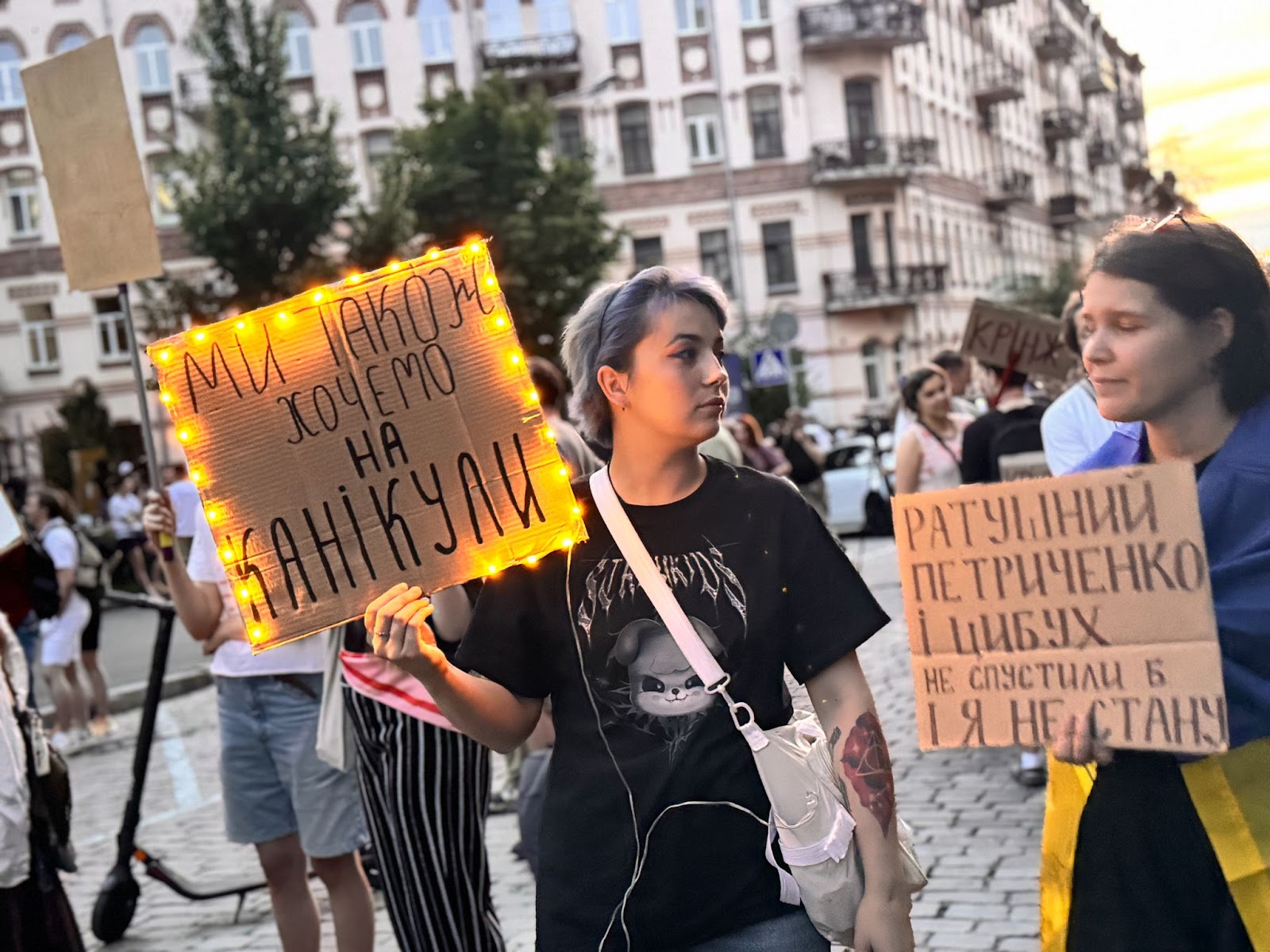
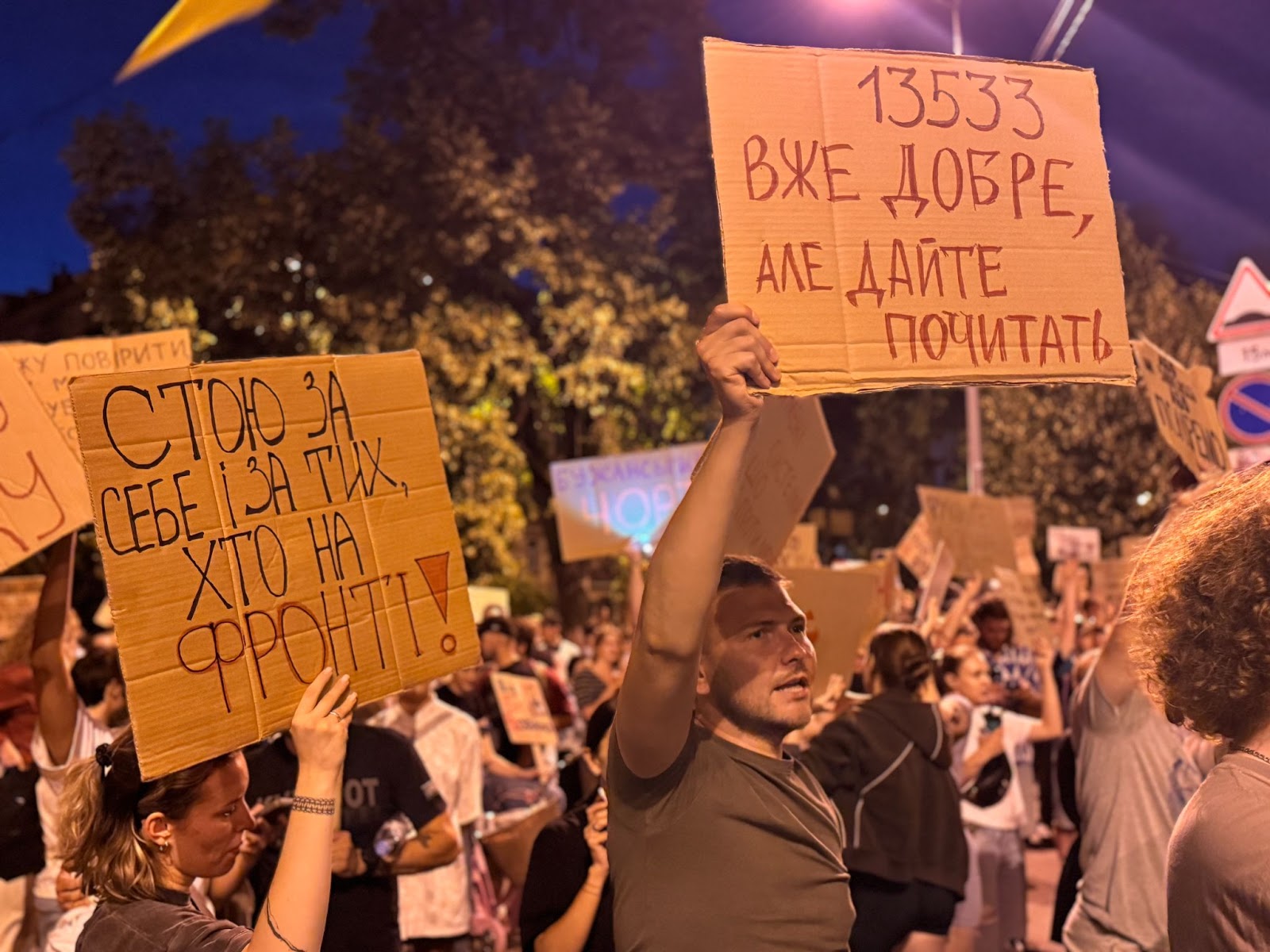
Promised provocateurs
Meanwhile, the day before, there were fewer people on Franko Street and a proportional increase in provocateurs. In particular, MP Bezuhla came to visit the protesters with a tablet on which she wrote the demand "Resignation of Syrsky." When asked what this slogan was doing at a protest dedicated to a completely different topic, the deputy consistently replied: I came to the site because there was no other place. Some people shouted, "Bezuhla is a devil." Others asked her to ignore her, and after about an hour, they finally got tired of her and left her to discuss with those who were morally prepared to do so. There are still no leaders in the crowd that spontaneously gathers at the closest point to Bankova Street, and nothing works here except small megaphones that are completely inaudible from the rest of the square. There are a lot of foreigners, and people are calmly talking to them and explaining why they came. I've seen criticisms on social media that young people are passionate but don't understand anything at all. But when, on the first day of the protest, somewhere in the crowd, they shouted: "ELECTIONS!" not a single voice was heard, and the four dozen people around me looked back at the man who shouted it with cold surprise. And the next day, after Klitschko appeared at the protest (where politicians were asked not to come), posters appeared with a personal request to the mayor not to do this again. Don't follow the example of the president's team, don't think people are stupider than you are. On Thursday, the guys in balaclavas who wanted to burn portraits were dealt with just as quickly.
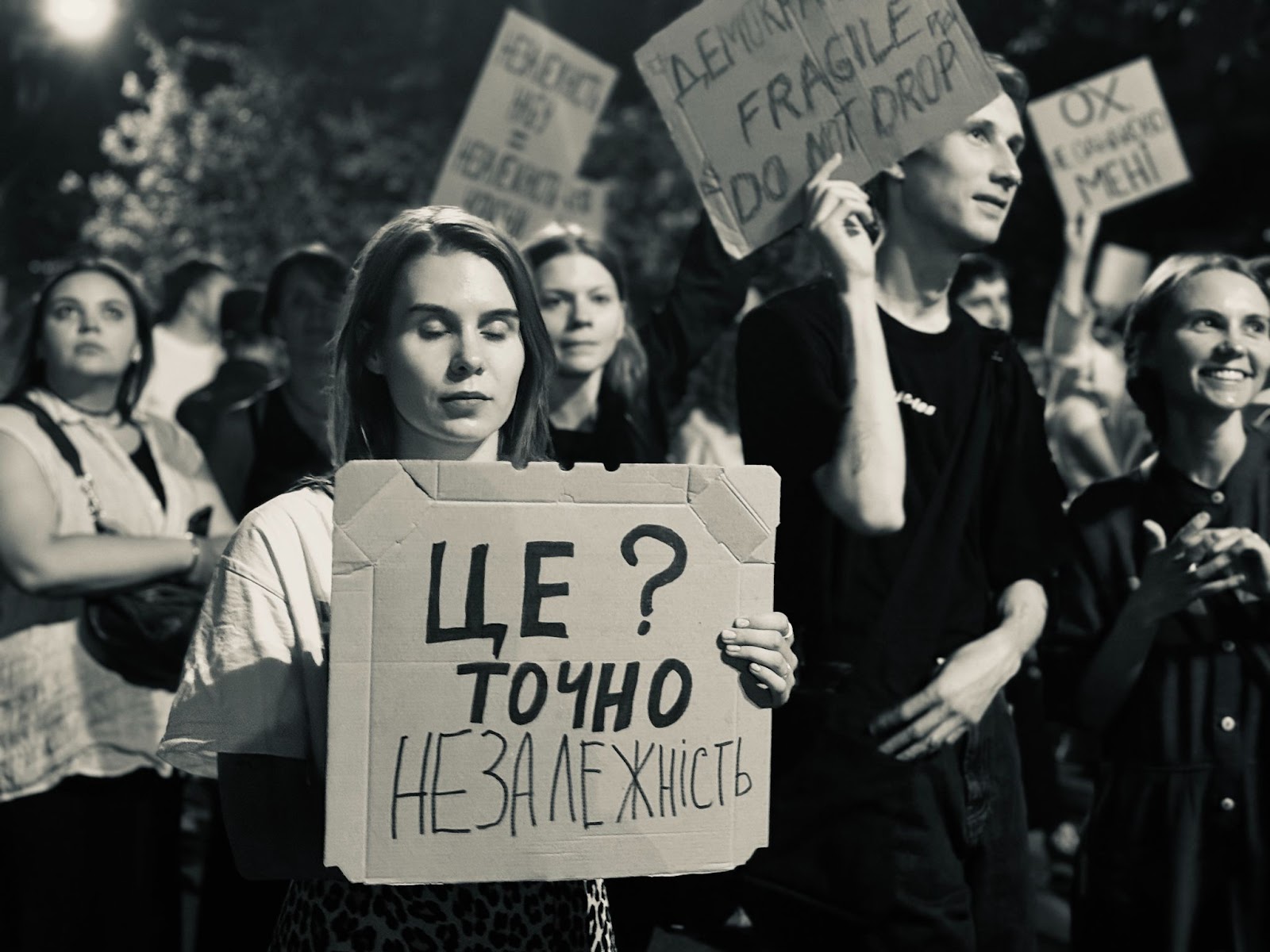
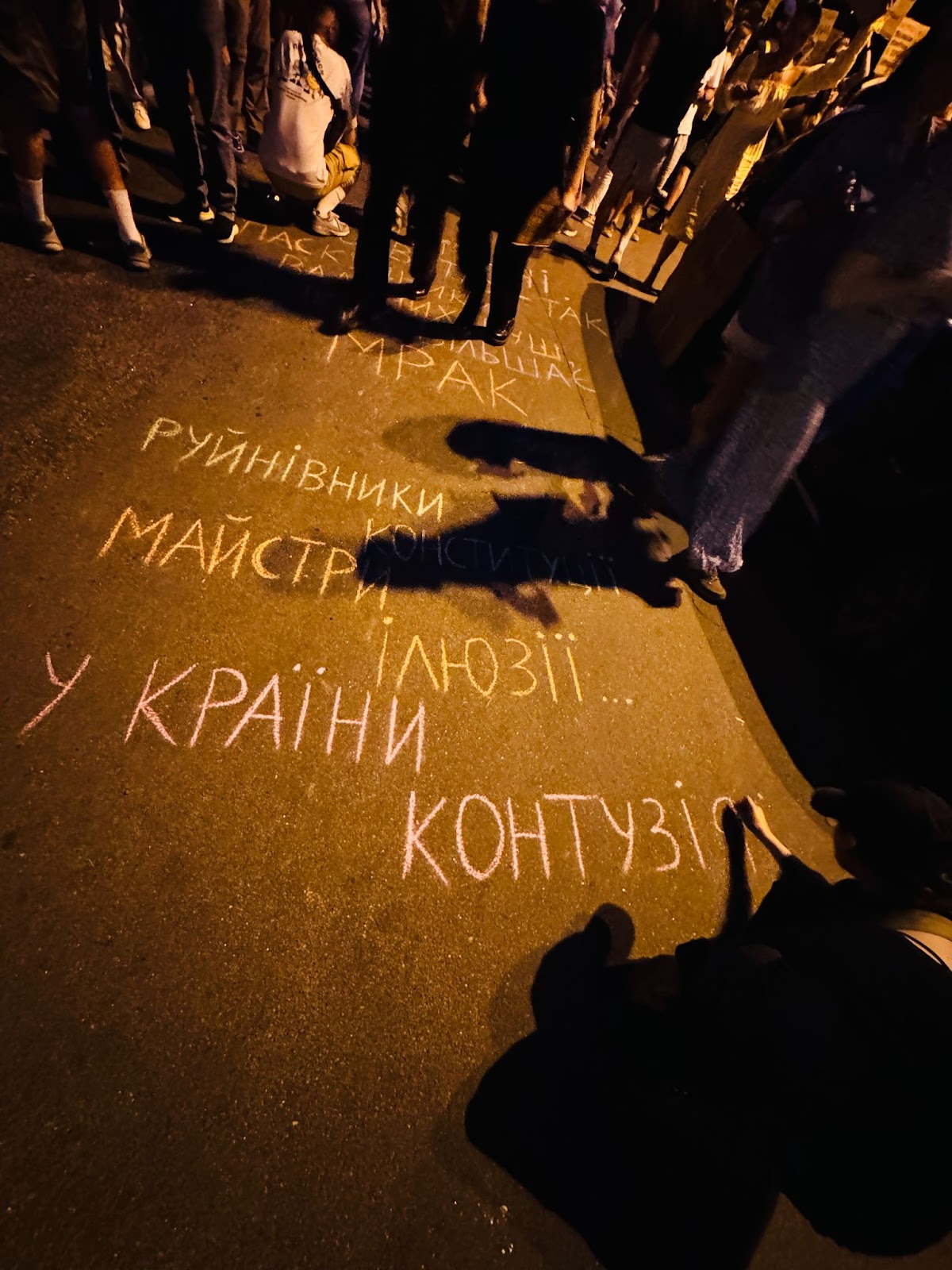
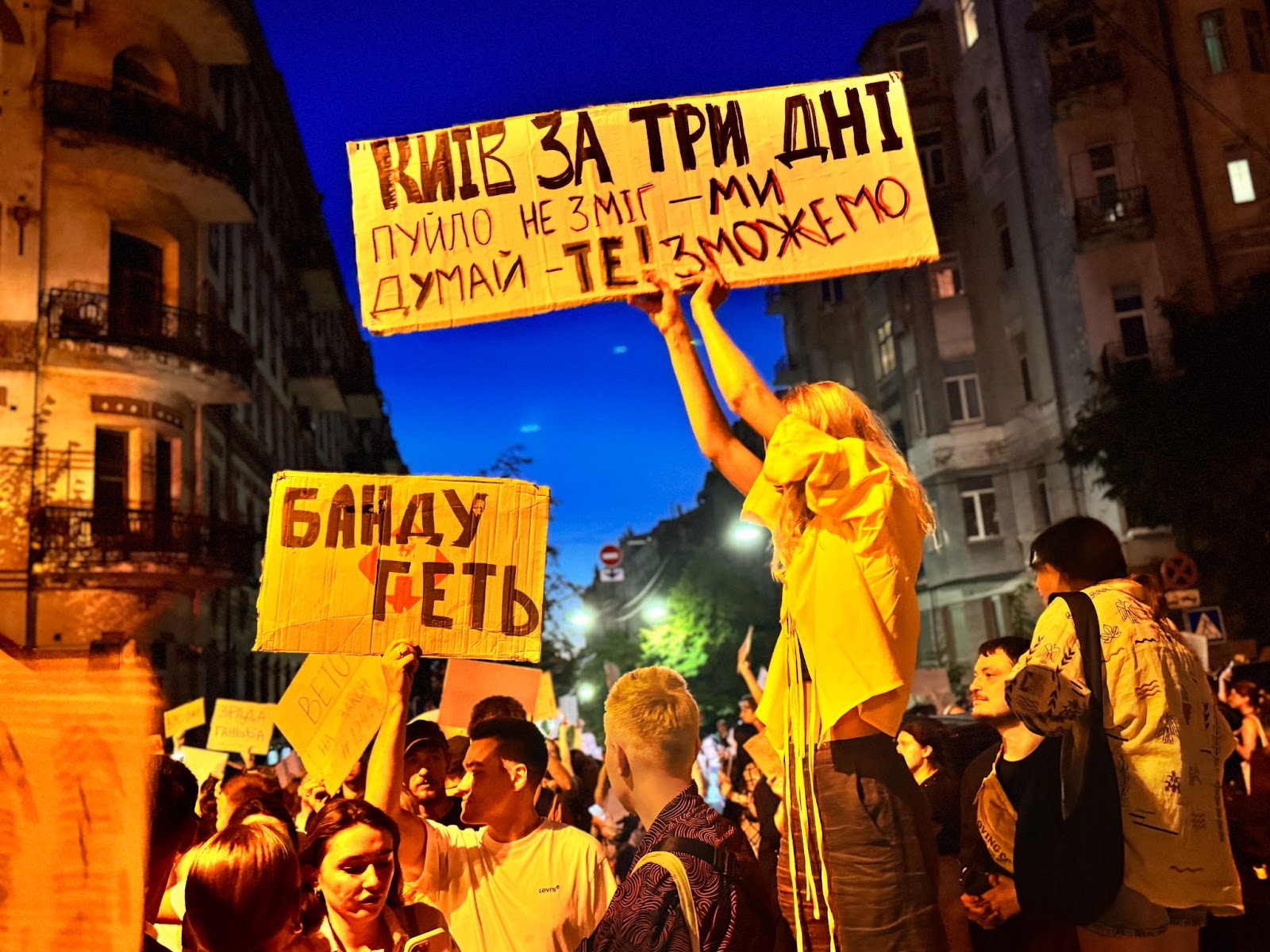
The grass
An interesting point: on Tuesday, before the presidential signature, when the main demand of the protest was a veto, at least two and a half thousand people gathered near the theater (I am very bad at counting crowds in conditions of such a relief as in the square, without the ability to climb somewhere noticeably higher, so I rely here on the official commentary of the Ministry of Internal Affairs provided to TSN), and the lawn remained clear of people. Even those who had to get past quickly avoided the grass. The news of the signature was greeted with a less massive shout of "shame" (the subway had stopped working an hour earlier), and the next day at seven in the evening, people started by sitting on the grass to draw posters. A little later, when a crowd of at least five thousand people gathered, people climbed onto the roofs of everything they could physically climb. This is an interesting detail from an anthropological point of view. The president's signature finally breaks the tacit social contract, and the third wave protest (also called a cardboard protest or a theater protest) clearly shows that he will not take off his shoes to stand on the benches.
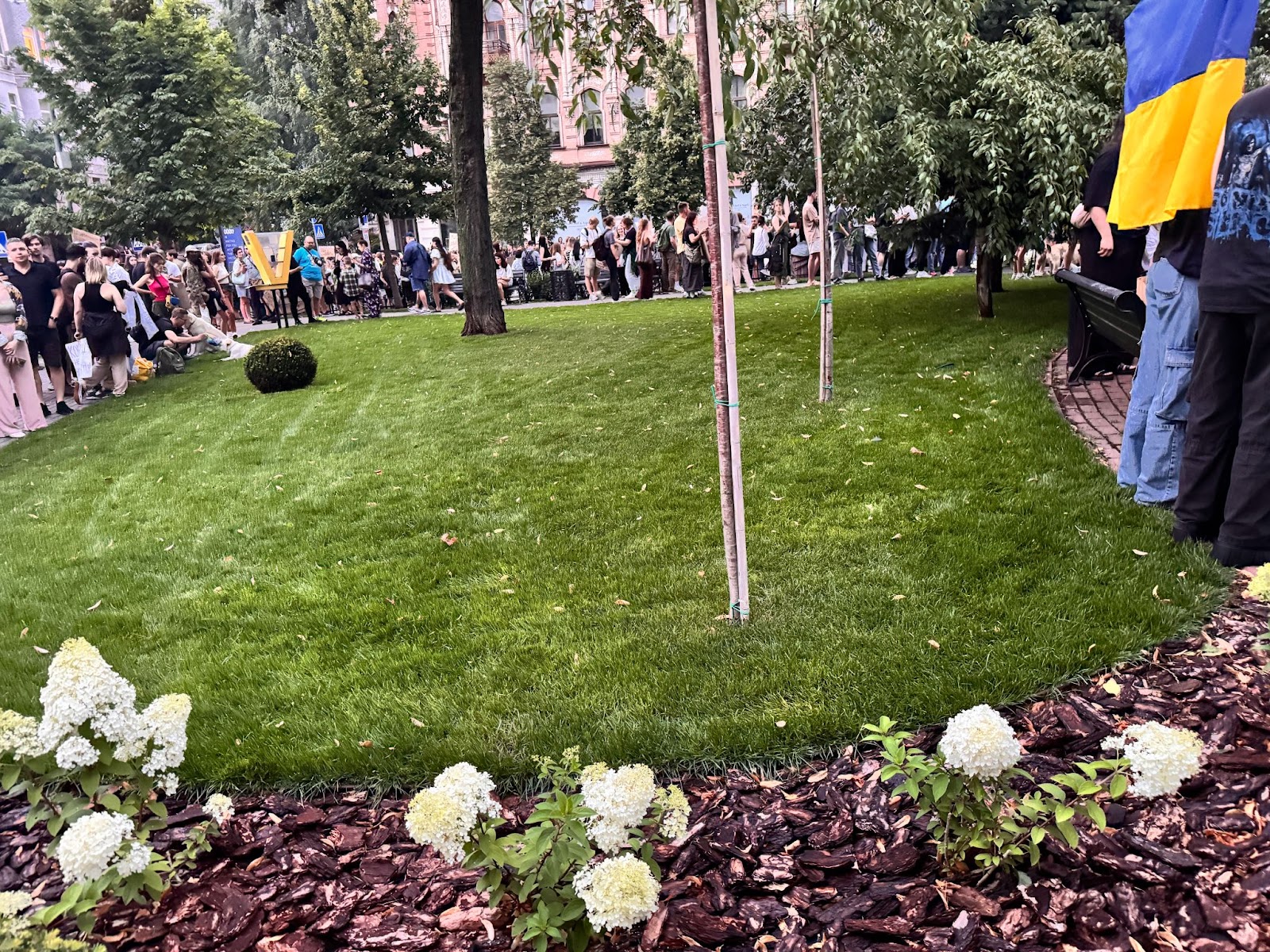
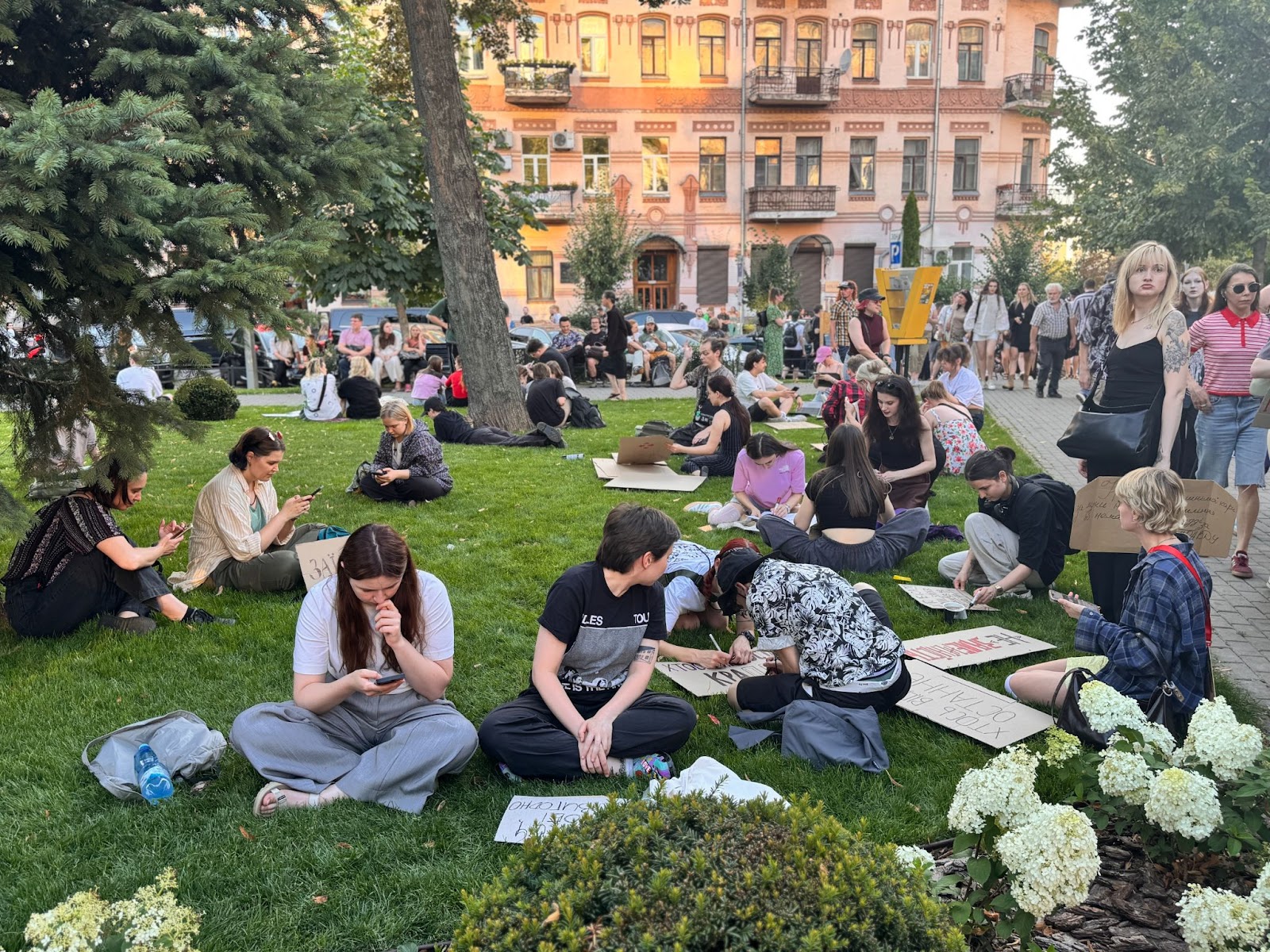
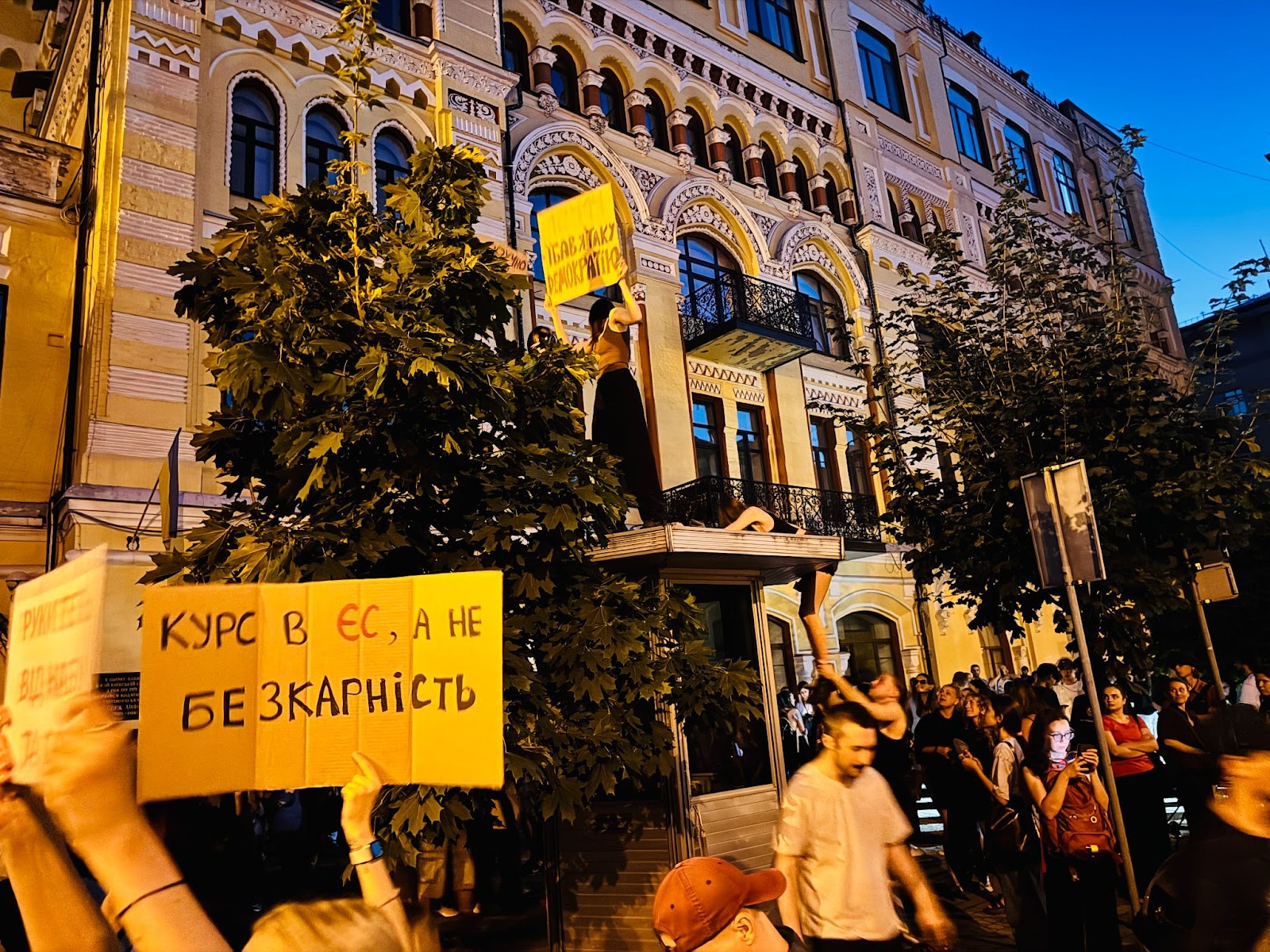
Deadliners
A separate, my favorite vibe is the deadline workers who hastily paint posters on the grass, on the parapet near the subway, in the surrounding cafes, which I systematically walked around on Wednesday because I knew for sure what I would see there, and I was right. Suggest to everyone who talks about a paid protest to go to “Sense” on Khreshchatyk and ask them about the price of coffee. Or better yet, ban them right away, because there is no point in talking to bots or people who earn much less money from this petty sabotage, so they work sincerely, hating their new incomprehensible fellow citizens.
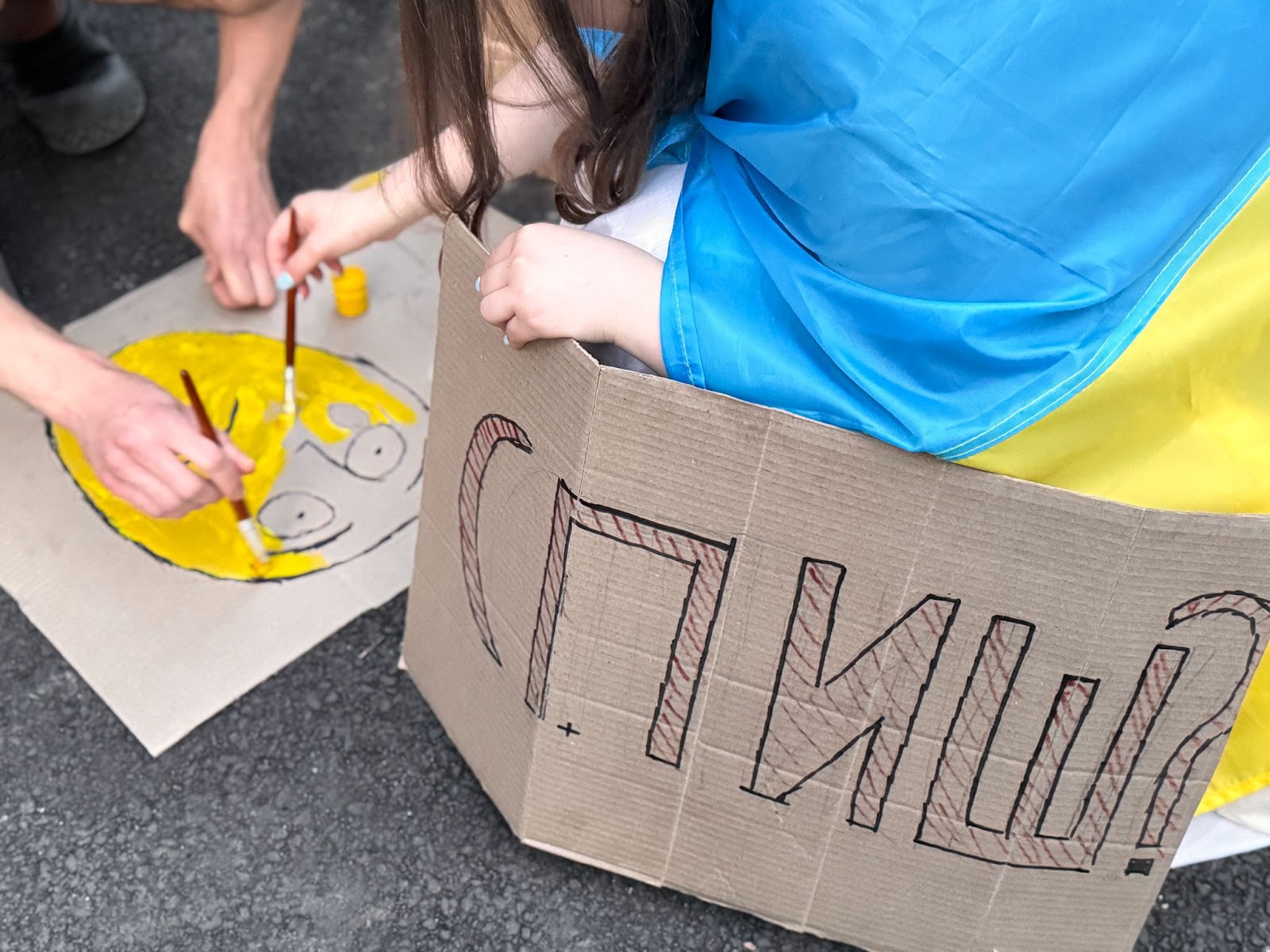
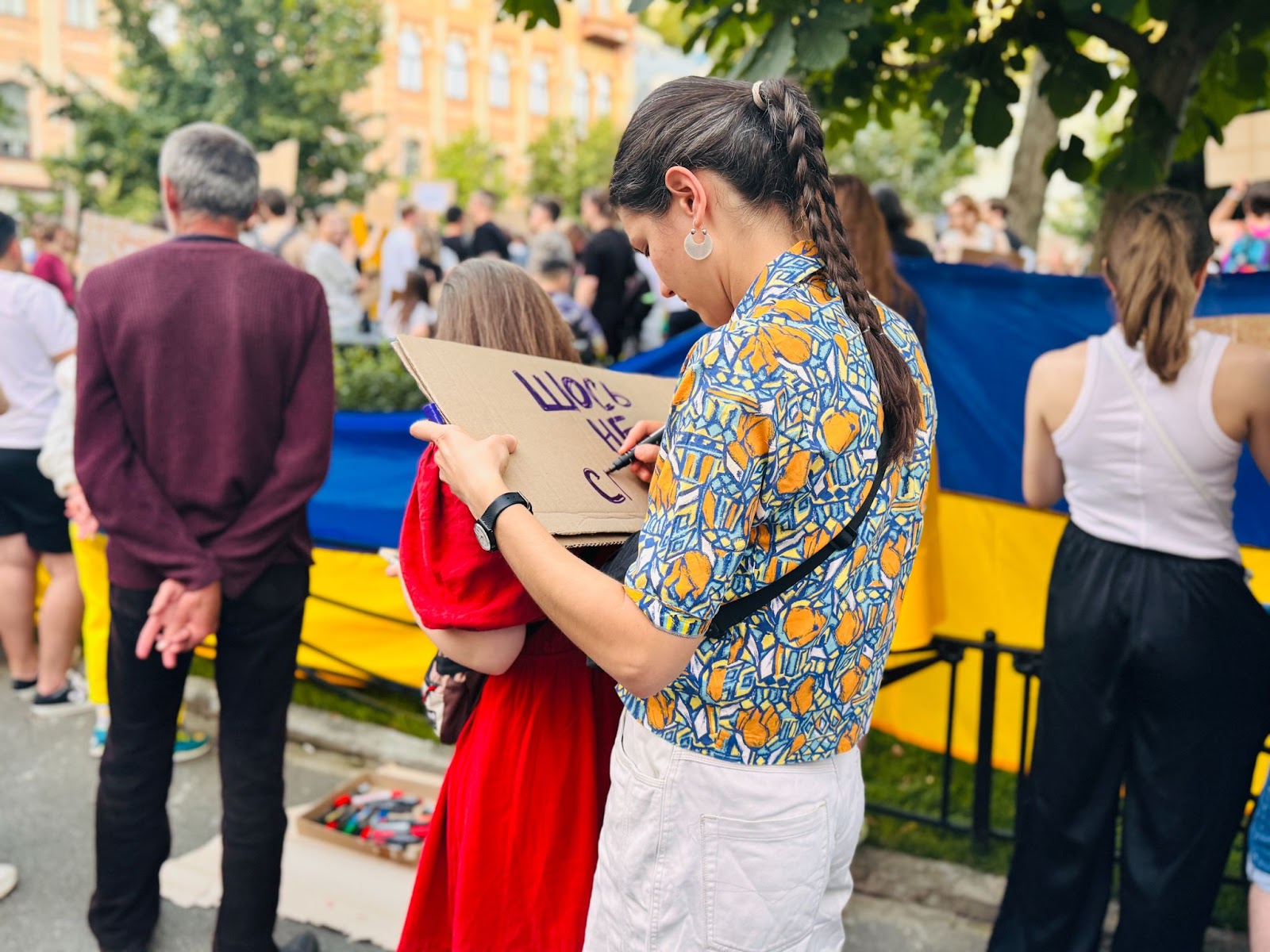
Censorship
No one shoots journalists at Marathon (where I also work) for airing protests, as some may have noticed. I don't know for sure, but I don't believe that an outright ban has been announced anywhere. Therefore, I sincerely believe that this is a matter of self-censorship. Let's be honest: every journalist in the world has it (otherwise you would hear much more offensive language on the air), and every journalist in the world broadcasts on the air or the pages of their publication the picture that they can see and compose themselves (for example, once, in a completely different, almost peaceful life compared to the current one, I was proving to a colleague: When you have to go through a metal detector to get to Pride, and then hide after Pride, you can't say on air that it was calm, safe, without any obstacles... I must say that my colleague had own arguments, that is, it was not even editorial ethics that clashed, but views on life and the dictionary definition of the words "calm" and "safe"). Again, in the era of social media, it is not enough to turn off the protest on the TV so that people do not see it. Even Bankova Street understands this. The effect of self-censorship or outright censorship, if it is resorted to, will be much more destructive if the new law, which this text begins with, is presented as exceptionally balanced and necessary for the state. Then, by flooding all controlled means of information distribution (and I'm not just talking about television) with controlled thought, some people who can read can be marginalized. This will be an interesting litmus test.
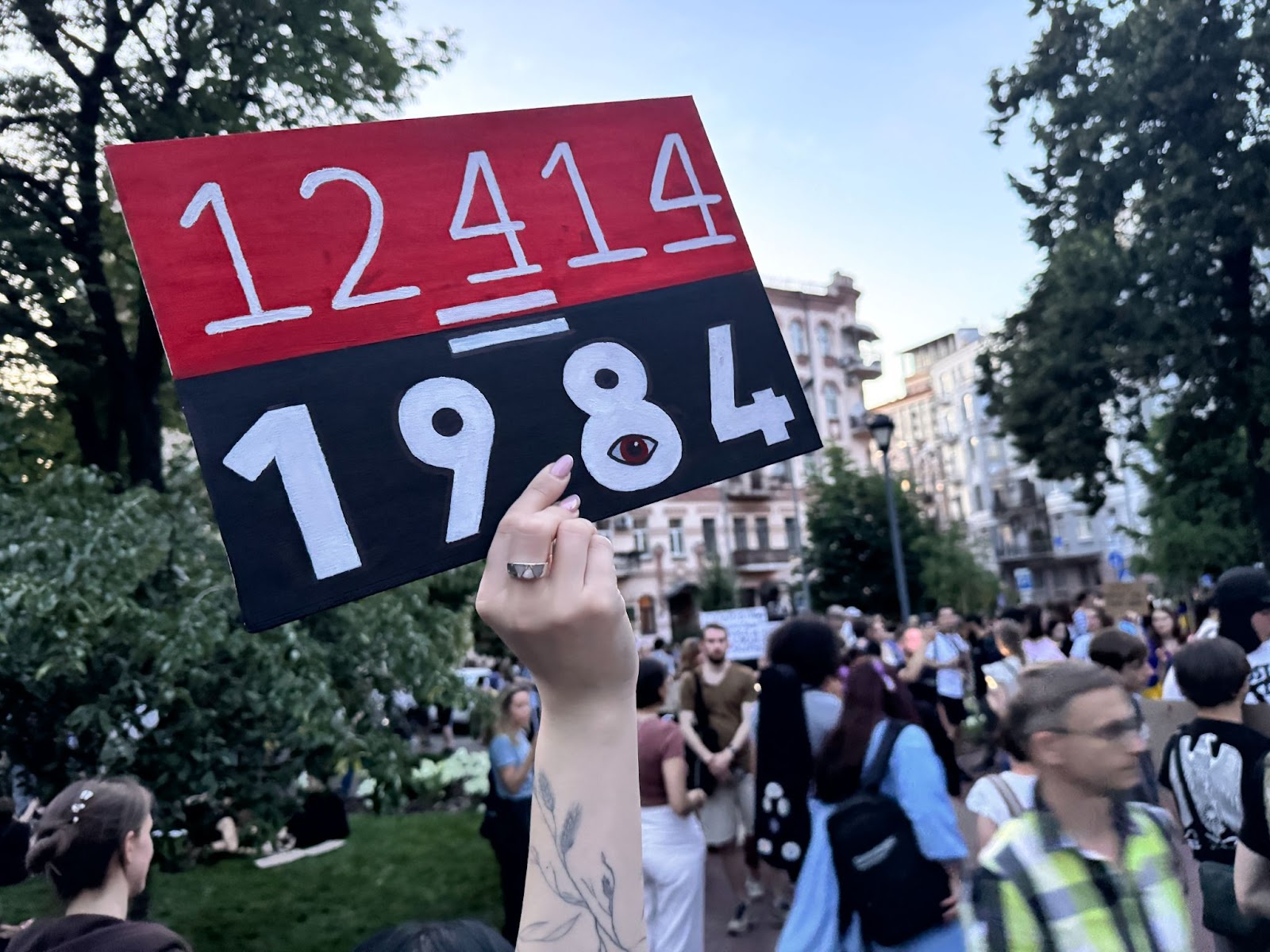
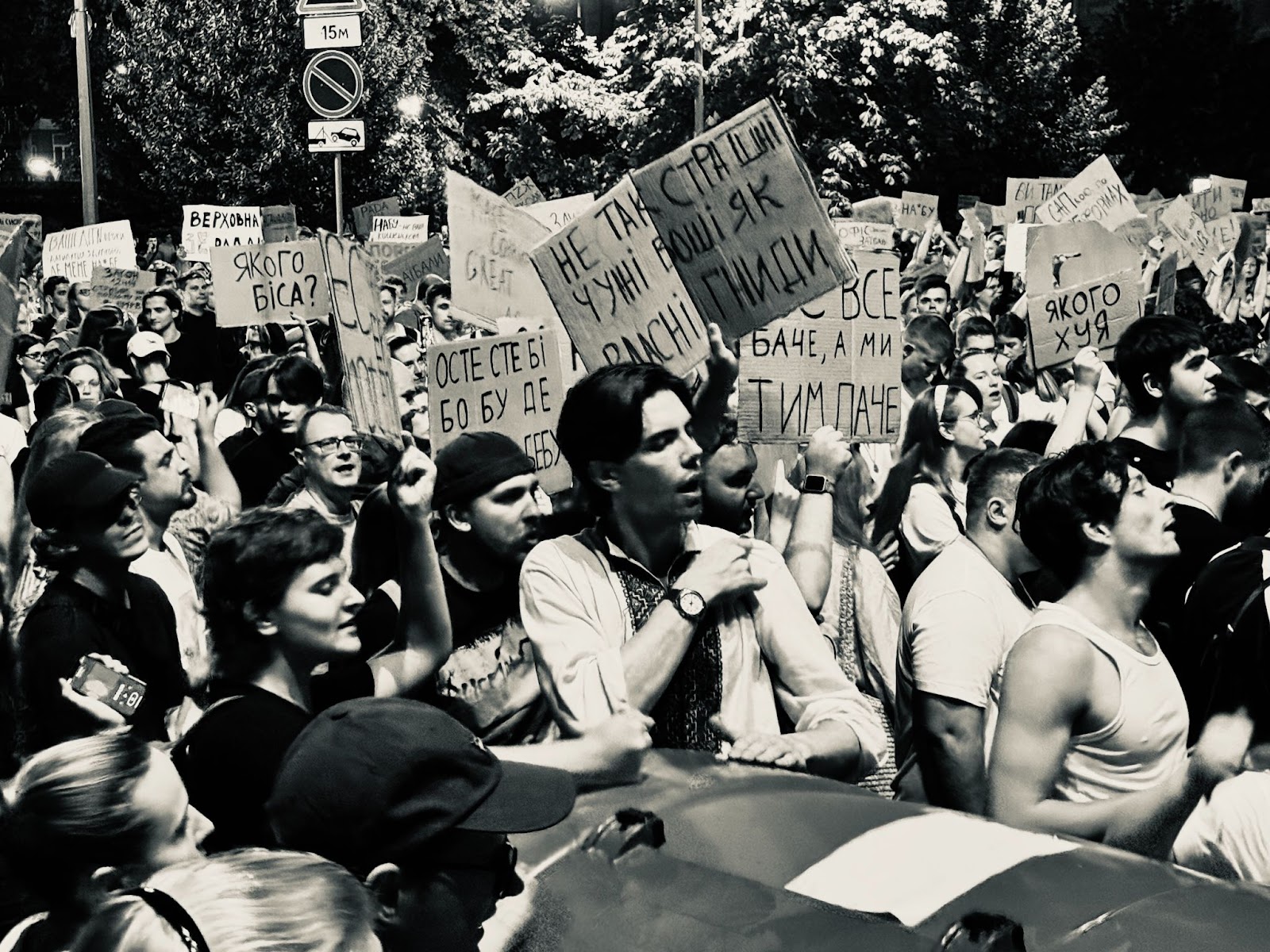
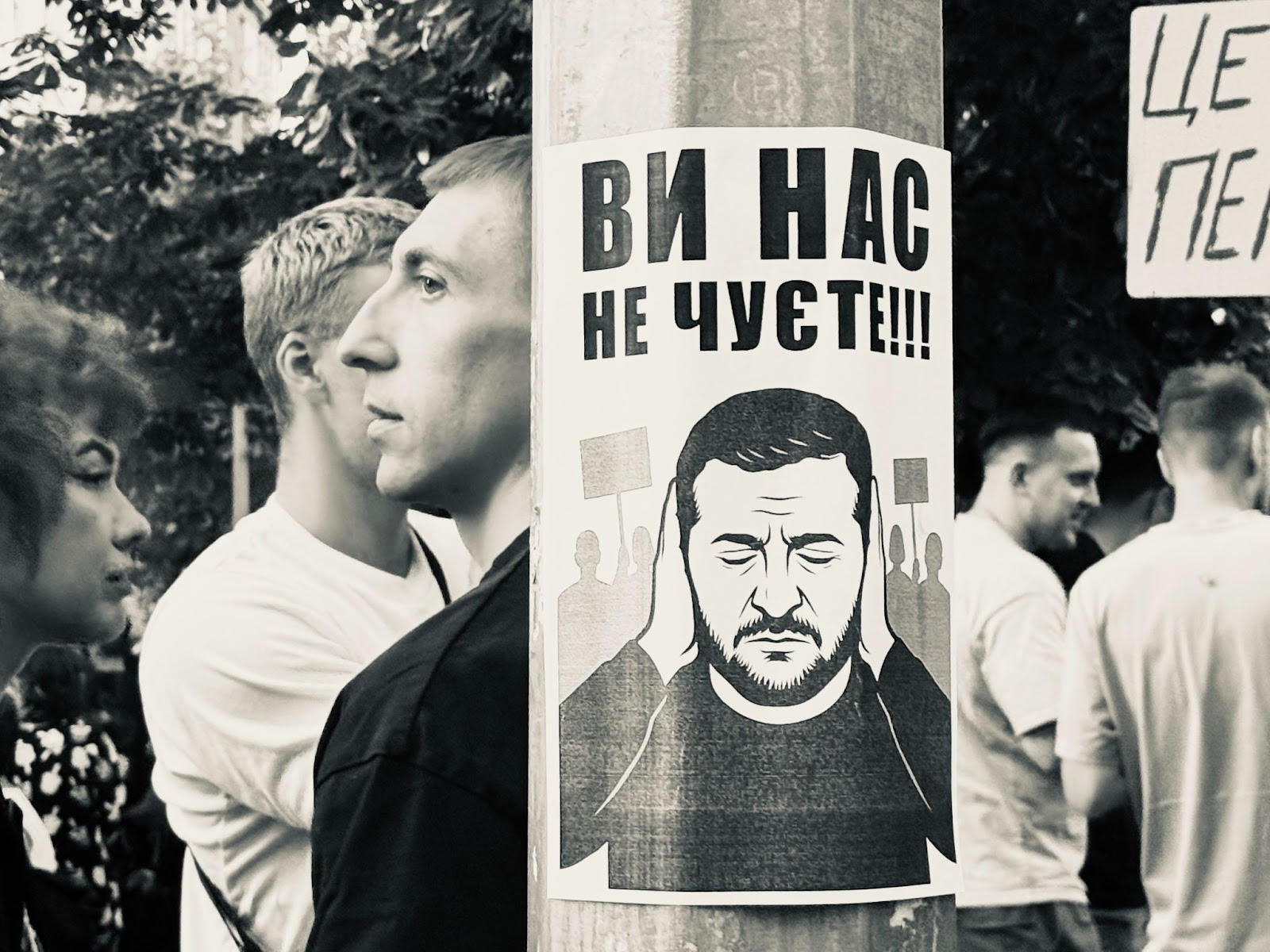
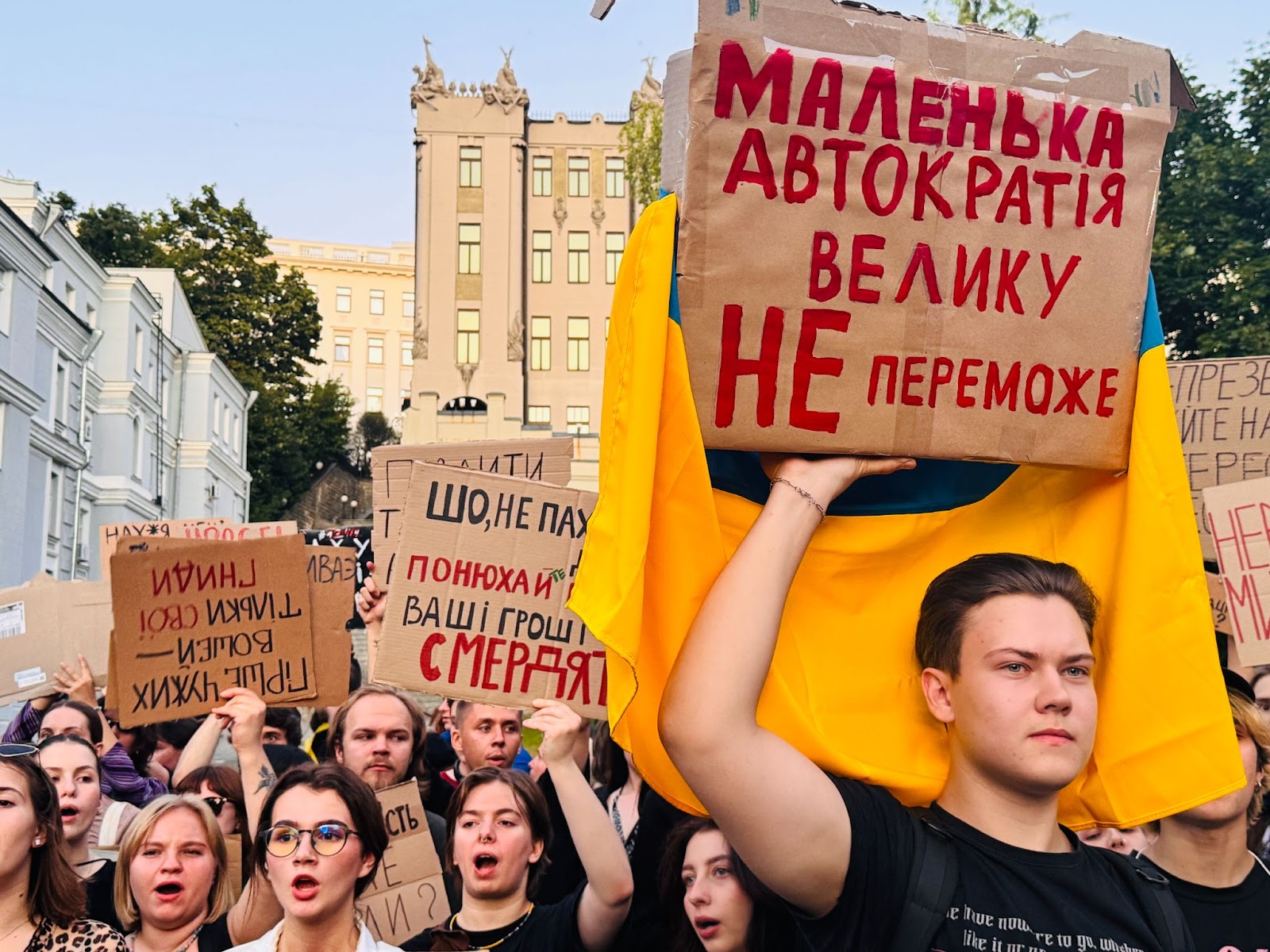
A zero-sum game
The worst possible scenario for a state is if the authorities decide that a democratic society is incompatible with their existence in a form convenient for them. Therefore, a society that behaves dangerously for the comfort of the authorities should be divided, intimidated, weeded out all those who will be affected, called provocateurs, and subjected to maximum force to make others think twice. This has already happened in many countries around the world, and this will be a long paragraph if I start counting even the most recent cases. For example, exactly ten years ago, also in the summer, I was in Yerevan, where the central avenue was blocked, and I spent a rather tumultuous week there. I was once told that it was good for us to protest in winter, and it was so hot for them. I explained what a water cannon felt like in minus ten temperatures, and the person I was talking to was a little embarrassed and agreed, and then we simultaneously wiped the sweat from our foreheads. I managed to talk to a government official there, who frankly said that the attempt to disperse the protest by force (many TV cameras were smashed) was a mistake, and now they were working to ensure that the protest disperses peacefully. The protest did not disperse peacefully; it was dispersed in front of our eyes. Some of the leaders offered to compromise with the authorities and move the demonstration to another location, unblocking the road. Some did not agree. The people were divided into unequal parts, and we all guarded the demonstrators from being dispersed that night - the press, actors, former officials, whoever was there in the buffer zone between the security forces dressed in assault armor and the barricade of garbage cans. Several times it seemed that the dispersal was about to begin, the security forces were hitting the shields with sticks, the buffer zone was not moving, and nothing happened until the morning. In the morning, everyone went to bed, reassured by the victory. A few days later, the protest died down, not surviving the division and President Sargsyan's promises to resolve the economic cause of the people's outrage, which was not raising electricity tariffs temporarily. Spoiler alert: Of course, they were raised later, and the bloodless protest was eventually crushed.
It didn't work on Maidan, because you can't beat children.
Back on Wednesday, a handful of those who stayed overnight, when I was about to go home, assured either each other or themselves that they would not dare to disperse them. It would have been extremely stupid to do so. It would be much easier, for example, to introduce two laws, fail to pass either one, and then continue to blame each other for weeks. On Thursday, Sevgil Musayeva urged MPs not to disgrace the country, which paid a high price for the opportunity to choose. She urged them to gather on Monday and "start from scratch." However, only those whose political (and physical, in terms of income sources) survival is not tied to the absence of a coherent civil society and viable anti-corruption institutions in the country have such a chance. It is only in a game with a non-zero sum that the victory of some does not necessarily mean the destruction of others.
In our case, the opposite may be true.
